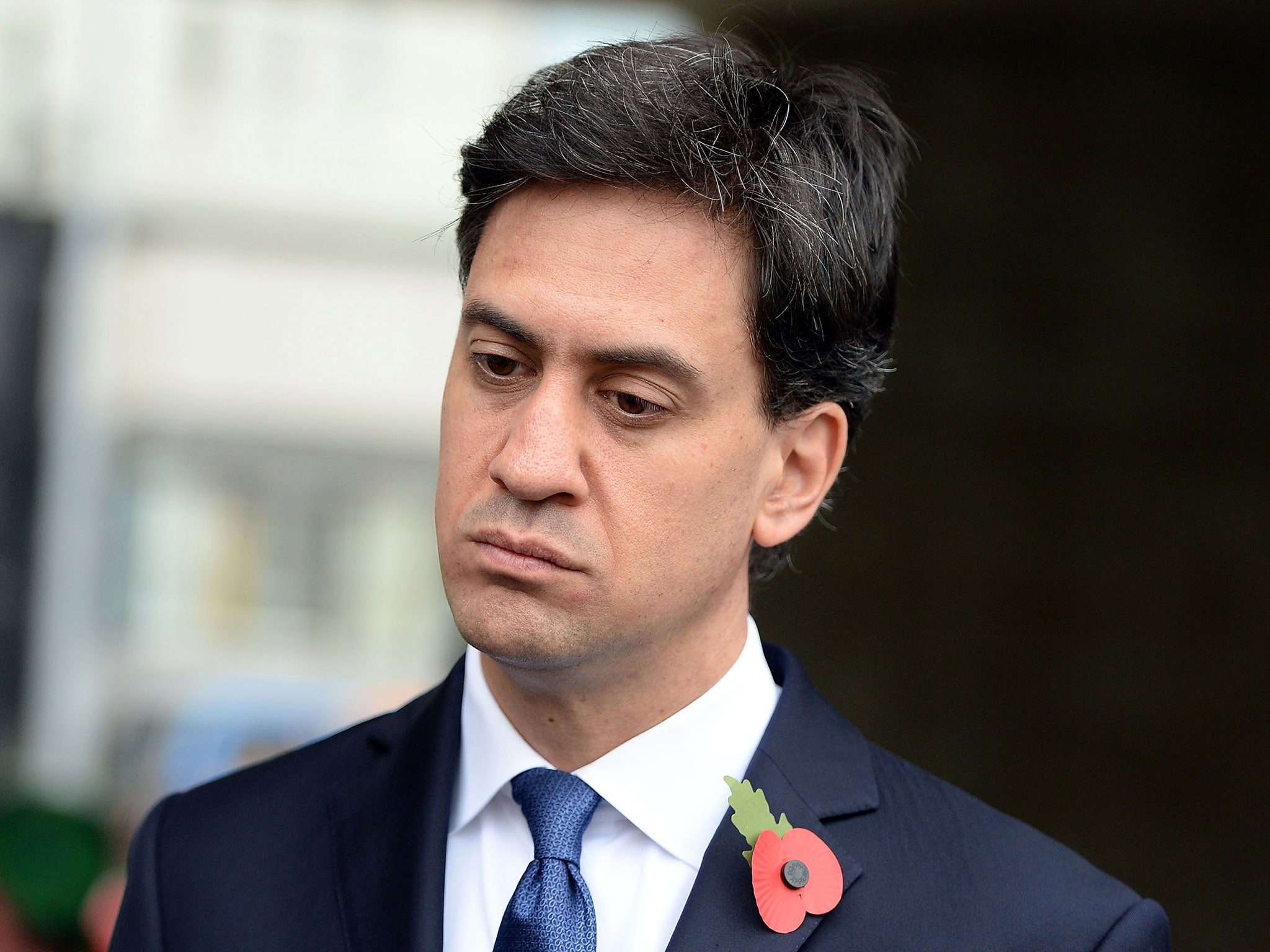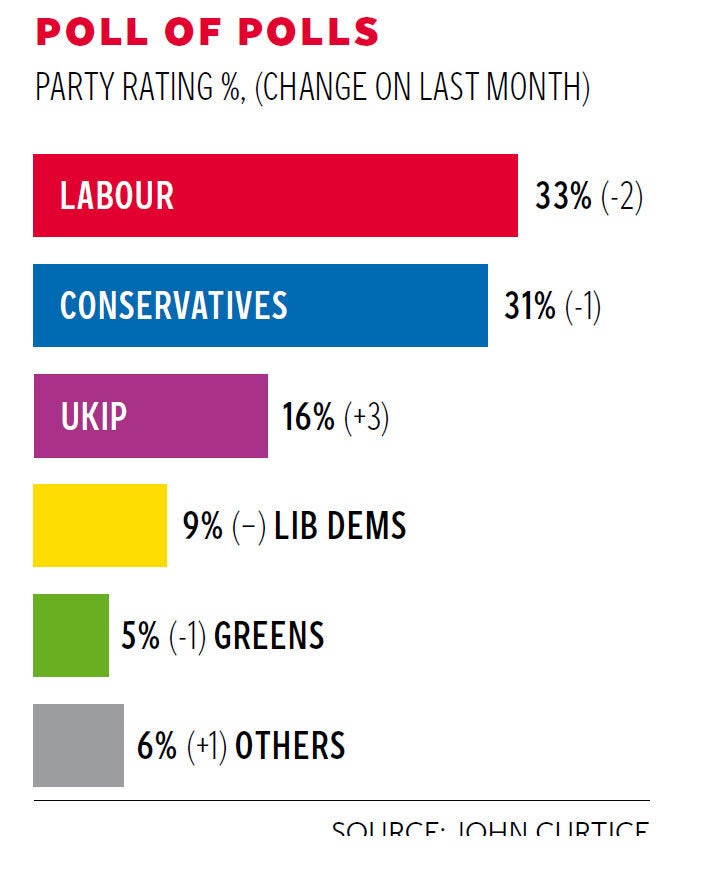Lowest Labour rating since 2010 elections in the latest poll of polls
Hung parliament more likely than ever with party just two points ahead of the Conservatives

Labour has slumped to its lowest rating for more than four years, while Ukip has reached a new high, according to The Independent’s latest poll of polls.
Although Labour, on 33 per cent, is still two points ahead of the Conservatives at 31 per cent, its lead has shrunk from six points in February. Labour’s rating is now at its lowest point since June 2010, when it stood at 32 per cent a month after a general election in which it secured 29 per cent of the vote – the party’s second-lowest share of the vote since 1918.
Labour’s downward drift contrasts with the continuing rise of Ukip, which is up three points to 16 per cent, beating its previous record 15 per cent in the poll of polls in June, a month after winning the European elections.
John Curtice, professor of politics at Strathclyde University, who compiled the weighted average of the polls, said Labour had suffered an 18-month trend of gradually falling support. Although the latest figures would give Labour an overall majority of one, they do not take account of last week’s polls, which suggested that the party could suffer serious losses to the Scottish National Party north of the border at next May’s general election.
This is the first time since early 2012 that Labour is not far enough ahead to win an overall majority, said Professor Curtice. “The chances that the next general election will produce another hung parliament appear to be increasing by the day,” he added.
Labour’s familiar problems seem to be getting worse. Ed Miliband’s “satisfaction rating” is at an all-time low, and the party has failed to persuade voters it can handle the economy. Professor Curtice said: “It has long been evident that Labour needs to persuade people that it can provide Britain with effective leadership and competent economic management. Its persistent failure to do so during the course of this parliament is now raising serious doubts about whether it has any idea how to do so.”

However, he found that there is “still no sign of any recovery in the Conservatives’ position”. The party is down one point on the previous month, underlining Tory fears of a “voteless economic recovery”.
Professor Curtice said it looked “increasingly unlikely” that support for Nigel Farage’s party would melt away as the Westminster parties had hoped. Ukip now matches the Tories in the voters’ eyes as the best party to handle immigration. The number of people who regard Ukip as a “wasted vote” has dropped from 57 per cent in May to 41 per cent.
Labour officials played down the finding and insisted the party could still win a majority next May. They insisted that Labour is the only party with a strategy for winning the election, claiming the Tories’ plan is “in tatters” due to Ukip’s advance. The Tories have a “40-40 strategy” of gaining 40 marginal seats held by Labour or the Liberal Democrats and defending 40 seats with a small Tory majority. Surveys in key marginals have put Labour ahead.
Labour officials argue that while Ukip takes some votes from Mr Miliband’s party, it costs the Tories seats. Professor Curtice found that 18 per cent of people who voted Tory in 2010 now back Ukip, compared to 10 per cent of those who backed the Lib Dems and eight per cent who supported Labour last time.
Join our commenting forum
Join thought-provoking conversations, follow other Independent readers and see their replies
Comments
Bookmark popover
Removed from bookmarks